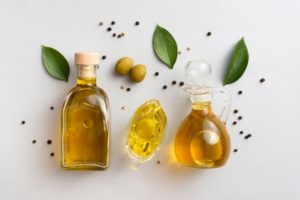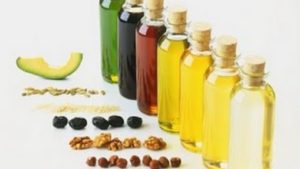Natural Plant oils are one of nature’s greatest gifts to man. Their benefits range from improving hair growth, antiaging in skin care, moisturization, improving skin barrier function, acne prevention, to even nutrition!
The global trend towards a greener, more holistic lifestyle has seen a rise in demand for body care products made with purely natural ingredients. This puts a responsibility on manufacturers of cosmetic products to ensure that their ‘natural products’ are bioactive and deliver on the benefits promised to consumers.
Plant oils, like many other natural ingredients can have shorter shelf-life compared to their synthetic cosmetic alternatives. Combine this quality with heat sensitivity in certain oils, then you have a situation where more caution needs to be applied in formulating efficacious natural skin care products.

FACTORS CONTRIBUTING TO HEAT SENSITIVITY
Plant oils generally encounter two forms of degradation which can affect both their physical characteristic and their nutritive properties. One is rancidity usually caused by oxidation, microbial or hydrothermal activities, and the other is heat sensitivity usually caused by exposure of oils to high temperatures.
While the effect of rancidi犀利士5mg
ty is more obvious and more commonly observed, as it would often lead to changes in the smell, appearance, and the texture/skin feel of the oil, the effect of heat sensitivity is more pronounced as not just the nutritive properties of the oils are destroyed but heating will further reduce their shelf life which will eventually result in rancidity.

HOW TO PROTECT YOUR OILS
Introducing high temperature to heat sensitive oils, doesn’t just eventually reduce the shelf life of oils, more importantly, it destroys the nutrients and wonderful properties of the oils rendering the products they are made with bland and ineffective.
Therefore, care must be administered when using some oils in formulations involving heat. For instance, when making an emulsion with a heat sensitive oil like Rosehip, Hempseed oil, Flaxseed oil or Borage oil to mention just a few. The oils should be added at the cool down phase or at the end of the formulation when the temperature of the formula is below 40C to avoid heating up the oil and causing degradation of its nutrients.
As a rule of thumb, it’s advisable that heat sensitive oils should not be added to formulations at a temperature above 40C. Anything above 40C will destroy its nutritive properties and make it prone to rancidity.
Generally, the higher the content of unsaturated fats in the oil, the more prone to heat and oxidation, which will result in a shorter shelf life. This is why butters and waxes in general have a longer shelf life than some carrier oils, they have lower unsaturated fat content.
The iodine value is another factor that effects the stability and shelf life of oils, the higher the iodine value of the oil, the more heat sensitive it is. Other factors are the nature of the oil, extraction method, refined/ unrefined oil, additives (antioxidants such as tocopherol or rosemary extract prolong shelf life), storage condition and more.
To protect your oils, keep away from light, oxygen and heat. When formulating, avoid overheating your heat sensitive oils, if you must, then do it over a short period of time.

EXAMPLES OF HEAT SENSITIVE OILS
There are many heat sensitive oils used in cosmetology. Examples of these oils include borage seed oil, Hempseed oil, evening primrose oil, rosehip oil and many more, however we would be discussing just a few.
- Rosehip Oil: Rosehip oil is an oil harvested from the seeds of rose bushes. It’s packed with vitamins, antioxidants and essential fatty acids. They are known to correct darks spots, hydrate the skin and reduce signs of aging.
- Hempseed oil: This oil is high in omega fatty acids and proteins. Fat and protein are easily denatured by heat. As such, this oil is very sensitive to heat. Hempseed helps to keep the skin well hydrated, extra smooth and is packed with anti-inflammatory properties.
- Borage oil: This oil is gotten from the seed of Borago Offinalis plant. It is great for boosting the skins natural moisture barrier making the skin smoother and plumper. It is good for treating skin conditions involving inflammation like eczema, rosacea and psoriasis.
- Evening primrose oil: This is gotten from the seeds of Oenothera biennial plant. It’s high in omega 6 and fatty acid. It smoothens the skin, improves elasticity, and moisture. It has great antioxidant and anti-inflammatory properties.
So, what’s your favourite heat sensitive oil?


